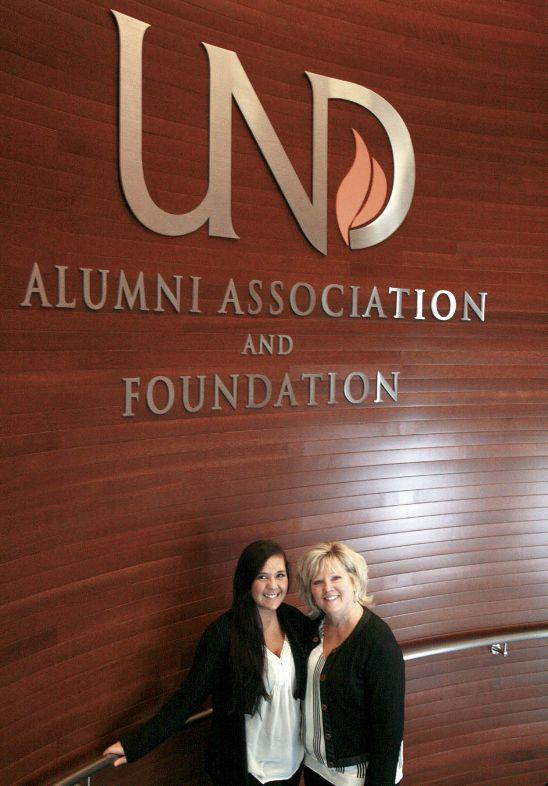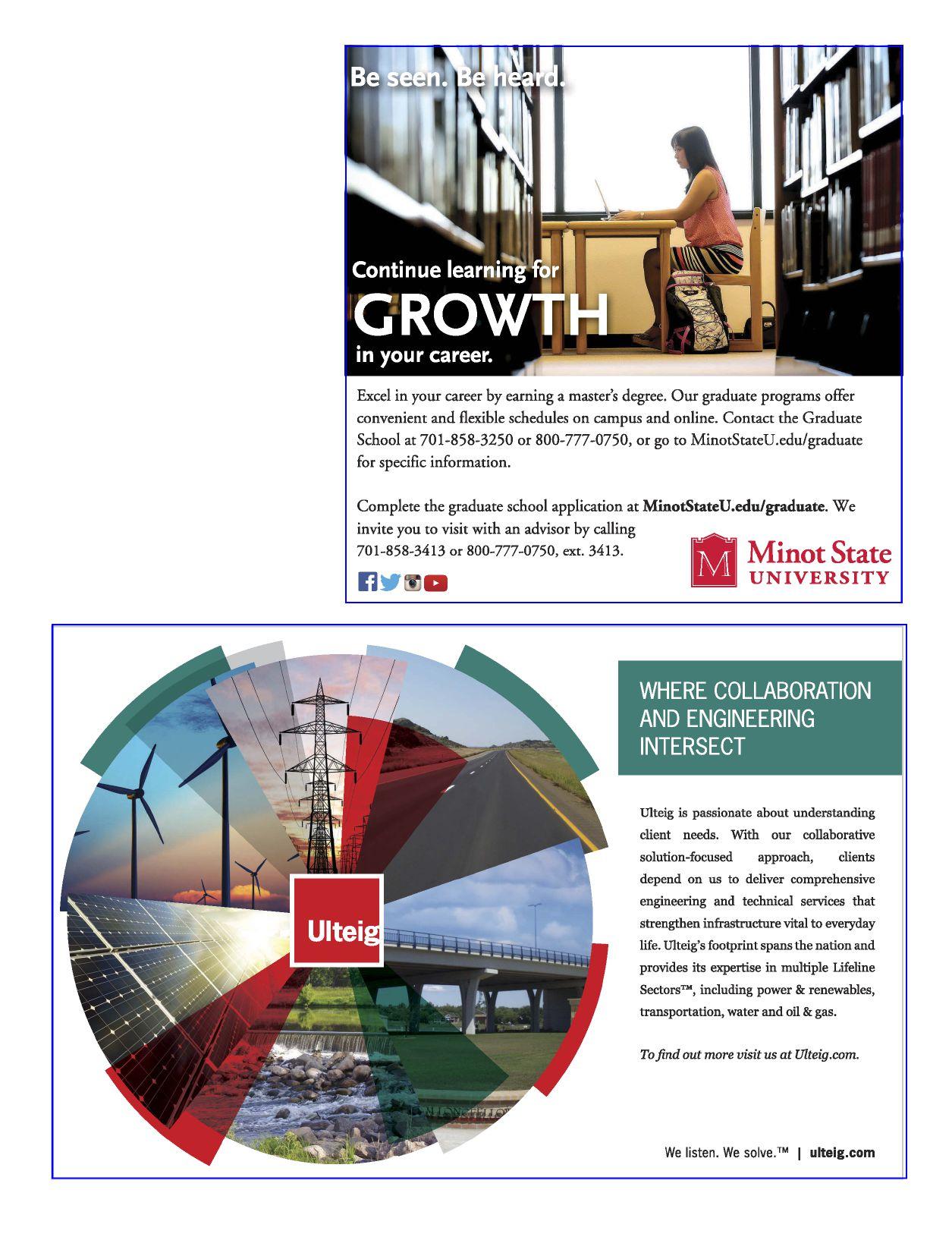
3 minute read
Graduate Programs
MSU Moorhead’s nationally accredited graduate programs are flexible, convenient and taught by award-winning faculty
Online
Curriculum & Instruction
Educational Leadership
Health Care Administration
Nursing
Online/Hybrid
MBA
MBA - Health Care Management
Special Education
In Person
Accounting & Finance
Counseling & Student Affairs
School Psychology
Speech-Language Pathology
Teaching English as a Second Language
Learn more at mnstate.edu/graduate all four years of college, says Steve Fox, assistant director of leadership and organizations for the Office of Student Activities. As the head of the program, Fox says the goal is for students to learn about themselves, how to work in groups and to understand citizenship and global perspective. The program pairs students with faculty members and is based on a social change model of leadership, Fox says. All students at the university, in any major, can apply to participate.
The main benefit of such a program is the self reflection that isn’t experienced in the normal classroom setting, Fox says. “It makes them think about their leadership experiences,” he says. “It makes them reflect on that.” Students are aided by their mentors and advisers in evaluating how they work in groups as a leader and how they can impact a community or broader group to create social change, he says. And students overwhelmingly appreciate that benefit, he adds.
Caroline Kozojed, director of experiential education and an assistant professor in the Gary Tharaldson School of Business at the University of Mary in Bismarck, agrees that the self reflection aspect of mentorship is one of the most significant benefits to students. The Emerging Leaders Academy she leads at the University of Mary focuses on the nuts and bolts of college, such as understanding the syllabus and communicating professionally with professors, but also teaches students they can be leaders starting today. “We really want them to understand that leadership is something they can begin practicing today, that it’s not something that they need a management title for.”
The program provides students with “self reflection of understanding who they are as a leader,” Kozojed says. Students can apply to the program as early as their freshman years and begin to learn how to incorporate being a leader into their day-to-day lives, she says. They learn to network, team up with University of Mary alumni, set goals for their careers and lives, attend internship events, develop professional skills and incorporate service and volunteer work into their days.
The University of Jamestown offers a Masters of Arts & Leadership program with a slightly different model than other universities. It’s geared toward professionals already in the career world who have demonstrated leadership and want to enhance their skills, according to Lonnie Pederson, program director. She says it’s a great way to equip leaders, and the eight-week course is a hybrid, incorporating online and classroom elements, to accommodate busy schedules.
Students come from all professional statuses, up to C-level executives, and span several sectors including banking, human resources, health care, higher education and others. “Individuals really represent a variety of vocational sectors,” Pederson says. “There’s a great cross-pollination that occurs because there is such a diversity in the classroom.”
Even though the students have diverse backgrounds, they come together as a team in the classroom, Pederson says. Students in the class come back with positive feedback at its end and enjoy the growth opportunities, she adds.
Mutual Benefits
Positive mentor relationships are beneficial for students, but they’re great for mentors as well, says Kathy Lund, director of the Pancratz Career Development Center at the University of North Dakota’s College of Business & Public Administration. “What we’ve seen is the mentees get a lot out of it, but so do the mentors,” she says. Oftentimes, the mentors and mentees become friends and maintain connections after the students graduate. “The mentors get very interested in the students’ success,” Lund says.
UND business students can take advantage of mentor opportunities at the career center starting in their sophomore years. Most mentors are UND alums, some having graduated years ago and others are more fresh in their professional lives. Lund says some students have strong preferences for one or the other.
Despite the time commitment required from both mentors and mentees, most say it’s worth it and many mentors offer their time every semester, Lund says. She adds that she’s seen a drastic increase in the number of students utilizing the opportunities the Career Development Center offers. And just like those mentors, Lund enjoys getting to know the students and watching them succeed. “It’s incredibly fun to see their success,” she says. “It really is a privilege to get to know them.” mentors benefit, too, adding it’s about paying it forward and hearing a fresh perspective. “I think any time that I can expand my interactions that I have, to get another perspective, to give back, that’s beneficial to me.” Tedford is a graduate of MSUM and sees tremendous value in the Executive Mentorship Program. “I think if I’d had that opportunity (as a student), that would have been tremendous.”
She says some mentors benefit directly by hiring mentees as employees, but she enjoys connecting with young people. It’s nostalgic, she says. She also directly benefitted from a speaker at a recent program dinner who taught etiquette. “I learned how to be the bread captain at the table,” she laughs.
Roehrich says taking the Executive Mentorship course came with a crucial realization: “To get where you want to be, you can’t just do a good job. You have to be passionate and excited and look at every day as a new opportunity to accomplish something.” PB
Lisa Gibson Editor, Prairie Business 701.787.6753 lgibson@prairiebusinessmagazine.com











